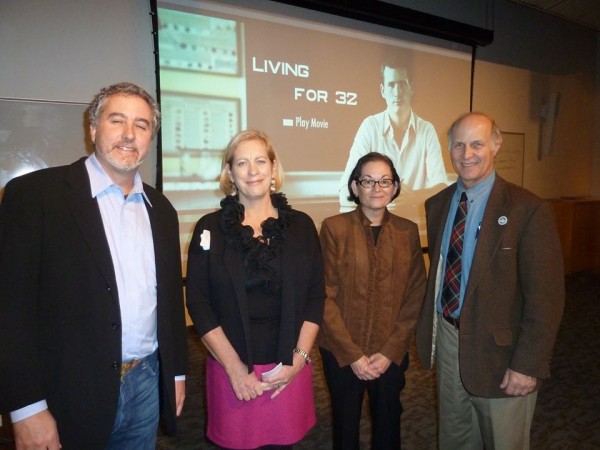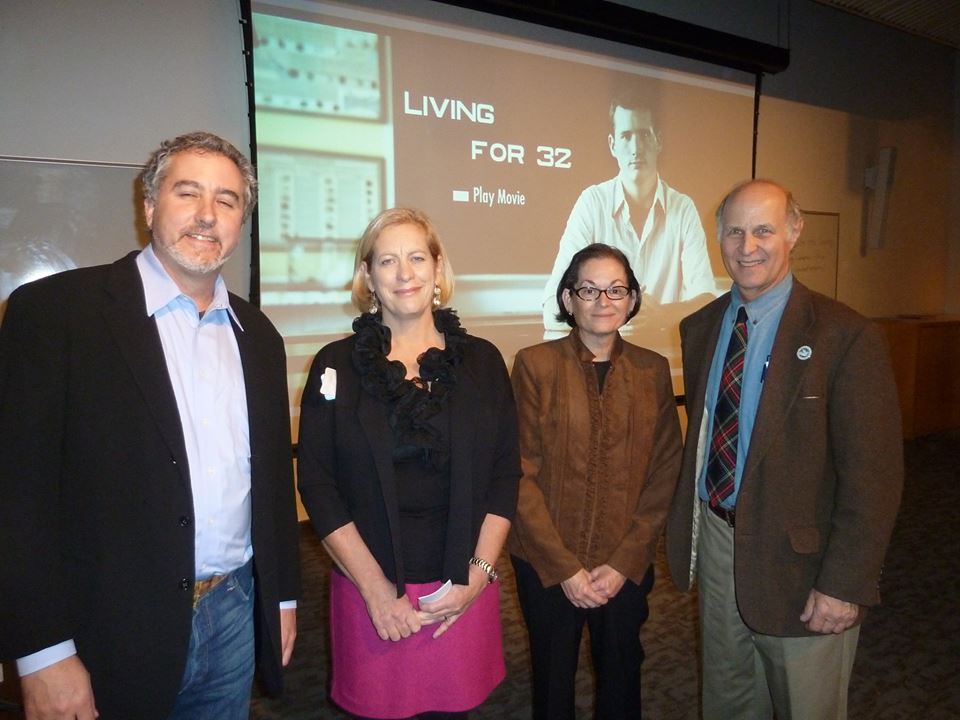
The Rhode Island Coalition Against Gun Violence (RICAGV) officially kicked off Monday night with a presentation at University of Rhode Island’s Swan Auditorium courtesy of Dr. Paul Bueno de Mesquita, director of the URI Center for Nonviolence & Peace Studies.
I attended the event with over 60 people from all over Rhode Island, though perhaps eight or nine members of the audience were not supporters, but members of various Rhode Island gun groups checking out the nascent coalition. Freshman Representative Linda Finn, a Democrat from District 72 in Middletown, emceed the event, officially announcing the kickoff of the coalition with website, Facebook and Twitter accounts ready to go.
Teny Oded Gross from the Institute for the Study and Practice of Nonviolence made a persuasive case for funding his organization which was forced for budgetary reasons to cut their staff last year, coincidentally on the same day as the Sandy Hook Elementary School shooting. Gross reflected on the tragic irony of laying off peacekeepers in the face of a massacre. Later, referencing the horrific murder of Aynis Vargas earlier this year, Gross said,
We had a 12 year old killed this summer in Providence, at a house party. [The Institute] could have stopped that.
After Gross made his presentation the Coalition showed the film Living for 32, a 2010 documentary about Colin Goddard, a survivor of the 2007 Virginia Tech shooting that claimed 32 lives.
The last presenter of the night was Arlene Hicks, president of the Exeter Town Council. For those who don’t know, four out of the five members of the Exeter Town Council are facing a recall election orchestrated by the powerful Rhode Island gun lobby (with plenty of outside help, of course.) I hope to explore this issue more comprehensively in a later piece, where I will attempt to explain the issues as completely as possible. In the meantime, check out saveExeter.org to support the town council against this kind of political grandstanding.
What I found most remarkable about RICAGV and its goals is that this is not a group of anti-Second Amendment zealots, but a group of people and organizations concerned with the prevalence of gun violence in our society. The mission of the coalition is “to create a safer community by preventing gun violence and enhancing gun safety. RICAGV will advocate for effective local, state, and national programs, policies, and legislation.”
That seems like a difficult position to argue with, but some do. The RI Gun Blog writes, “Notice the use of the phrase ‘gun violence.’ Associating guns with violence is tactic number one for the anti-gun crowd. Associating guns with violence is a rhetorical trick that ignores centuries of tradition, competition, hunting, and self-defense.”
Honestly, I don’t even know what to make of such criticism. Am I to believe that a gun will allow me to defend myself without violence?
The RI Gun Blog piece compares the launch of the RICAGV to the unveiling of “an ugly bride at an arranged wedding” but ironically ends by advocating politeness. “Here’s the bottom line, these folks that are joining up with RICAGV are our neighbors… We have a difference of opinion a mile wide, but the law, history, and common sense are on our side. So be polite, but also be firm in your convictions that freedom is the best possible policy.”
For the most part those in attendance at last night’s event were polite and respectful, but one man did not get the message and become so agitated towards the end of Arlene Hicks’ presentation that he stood up and vocally berated the entire audience, saying, “Why do you have to show Exeter here? You know, you talk about grandstanding, you’ve got the perfect example here. saveexeter.org. That’s really good. Great advertisement. Spend ten dollars to come in here and look at this. It is an insult to me! Good night! I hope everyone has a nice night tonight. You make me sick!”



